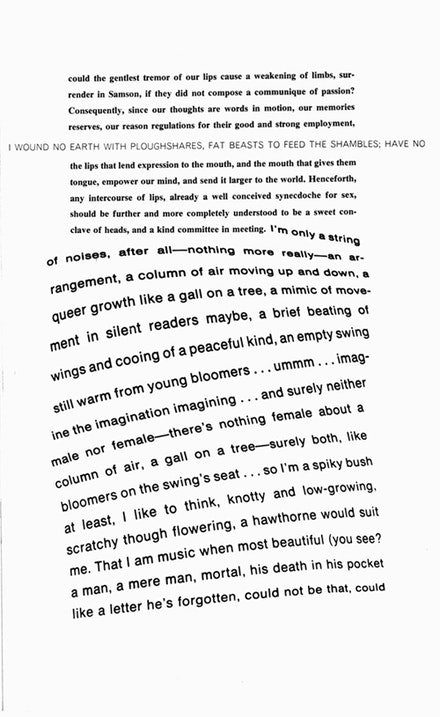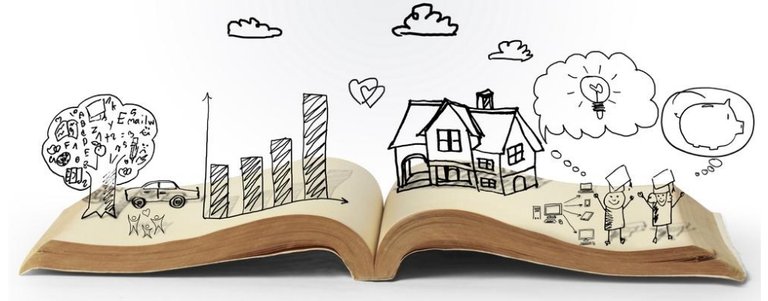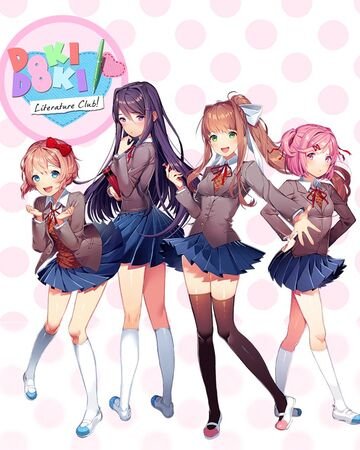Apologies in advance to @theinkwell management in case this doesn't fall under the type of content they want here. However, this is my attempt to contribute further to this amazing community.
Picture a scene
The narrator talks to his character "Hey, Amir"
"What" Amir replies as he stares into his phone
"You need to start writing your post" The narrator says
"Okay," Amir responds "I just need to see how my old post did"
"What?" The narrator shouts "You need to start now"
Amir doesn't respond as he remains distracted by his phone
"Okay," The narrator begrudgingly as he writes into his book "Amir removes the phone"
Suddenly the phone disappears
"Why?" Amir asks "Why did you take away my phone?"
"Because I am talking to you and you are not answering me" The narrator explains angrily
"Okay," Amir responds "I will start now"
"Now take off your sunglasses before you start" The narrator orders.
"Didn't you take away my phone?" Amir objects "I am not taking my sunglasses"
The narrator writes the disappearance of the sunglasses
*The sunglasses disappear"
"Eat some fruit before you start" The narrator instructs Amir "It will help you focus"
"I am not going to" Amir responds angrily
The narrator writes putting an apple in Amir's right hand only for Amir to throw it away. The narrator writes putting an apple in Amir's left hand only for Amir to throw it away.
The narrator decides to put the apple on Amir's head this in show of dominance
"You know what?" Amir responds with fury "I am not doing it. Get someone else"
The writer, fed up, decides to write in another more cooperative Amir.
"Hello" New Amir responds gratefully "Thank you for this amazing opportunity"
"Are you ready to start?" The narrator asks new Amir.
"Not yet" New Amir responds "Can I have an apple first"
"Okay" The narrator says "Don't forget to added sources to your images"
End of scene
Hello, dear readers. We all love stories, I know we do here, otherwise we wouldn't have spent the last 14 days seeking redemption while having sex with robots after killing God. We see stories everywhere, Instagram, Twitter, Facebook, porn hub comment section, no? Just me?
Today I am not going to share a story, but rather the story of the story.
How Much Do We Love Stories ?
Well, in 1944 Fritz Heider and Marianne Simmel published a study of their experiment that consisted of showing 34 female college students the video bellow.
The video shows 3 shapes, a big triangle, a small triangle and a small circle moving around with a rectangle opening and closing. After showing the students the video they got a variety of answers. One said the small shapes were two lovers and the big triangle was trying to ruin their relationship, another said the small ones were annoying the big one, many answers were given. Only one girl said that those are merely shapes moving around, needless to say, that girl doesn't get a lot of party invitations.
The experiment was repeated on a larger number of people and again, the stories varied almost as much as there people telling it.
Our Love for Stories Goes Way Back
In old Greek for example, a man well-known there was Homer
Nope, not that one

Image source
Doesn't look that different, does it?
Anyway, Homer is the author of the two most important books in mythology "The Iliad" and "The Odyssey". Epic poems that talked about the Greek gods, Athens, Zeus, Posidon, and many more. These books were treated like holly books, in the old Greek, people believed in those gods. They also considered a great role model to please.
Briefly, Stories Progressed
They started to have different type of storytelling platforms such as theater. Theater in old Greek had everything, comedy, tragedy, satirical, whatever you can think of. They tried everything, except one thing: Novels.
Old Greek didn't have novels?
No, in spite of the fact that poetry and theater were known almost since the start of civilization, novels as we know them weren't a thing until the 18th century. So novels started around 300 years ago.
To put this in perspective, novels were preceded by the invention guns, telescopes, and the mechanical calculator.
Then what was Shakespeare doing?
Bare in mind, I am talking about novels as to what they are currently. A novel now is fiction made up of at least 50 thousand words, has a plot and character development. You might think it kind of makes sense. Guns, telescopes, and mechanical calculators were essential to the civilizations at the time, fictional novels aren't that important, and you would be write.
Novels Started as Means to Kill Boredom
In the late 18th and early 19th century was the start of the Industrial Revolution. What does one have to do with the other? Well, a result of said revolution was the existence of new class of people: the middle class. Unlike the upper class who were owners of factories and farms, the lower class who worked at those factories and farms, the middle class worked at banks, shops, and schools.
During one of his lectures, American novelist William H Gass, said that the main reason for the existence of novels was the middle class. According to Gass, women in the middle class didn't have jobs, thus they had extra free time that they spent on spacing out into these novels. That is why middle class women were the top fans of said novels and the main reasons for them to spread.
Unlike Homer writings and the epic poems about brave warriors, the heroes of novels were everyday people. That is why "Pamela; or, Virtue Rewarded" by Samuel Richardson, a novel credited for being the beginning of novels as we know them, we find in it that the hero of the story is a maid in a house, not an epic warrior. Most of the events in the novel happen inside the house.
We find great novels from that time like "Pride and Prejudice" by Jane Austen, and "Jane Eyre" by Charlotte Brontë, those novels were built on one thing mainly: secrets and gossips. According to Gass that is what made the women in the middle class like those novels. When a woman reader relates to those novels when seeing how simple the women are, according to Gass again.
Enter Stage Left: Modernism
Novels then took a different turn, it started talking about poverty, children labor and misery. Led by Charles Dickens, we started to doubt ones ability to guarantee a future, especially after a big event such as world war 1. We started seeing novels criticizing the world for the misery, attacking the greed in capitalism and the industrial world.
After world war 2, we saw the death of 60 million people, we, as a society, found extreme sadness, and started to lose self-confidence when it comes to the future, not only for us, but for humanity as a whole. Thus started a new phase that is important to literature and the studies of humans
Enter Stage Left: Post-Modernism
Post-modernism made an art out of self-criticism and the critique of our history and beliefs. Suddenly, the entirety of humanity was having a midlife crises. Imagine the entirety of humanity going on Instagram to post a picture of itself drinking coffee in the black-and-white filter with a caption of a Billie Eilish song. Not only that but seeing the needlessness of improving life as life itself became absurd.
That mentality was reflected in novels as it attacks reality, not only that, novels started attacking themselves. Novels started attacking its own structure. During post-modernism there was the start of what is known as the "Anti-Novel". Anti-novels went against everything that made a novel what it is as some didn't even have plot, some anti-novels made you lost trust in the author writing it himself.
Post-modernism gave us characters in novels who knew they were characters in novels.
Enter from the Crowd: A Pretty Self-Aware Meta-fiction
Up until modernism, there were specific lines not to be crossed between the author, the novel, and the reader. The characters in novels weren't aware they were written, nor they were read. But with meta-fiction, the characters are aware that they are figment of the author's imagination, and that they are read by a reader, such as your lovely self, how are you by the way? We haven't really talked before, have we? You have such beautiful eyes.
Novels became no longer means to tell a story, but became a work of art itself. Authors no longer only cares about what a novel says, but the cover, the way words are constructed and the way the reader would perceive the book as a whole as all of those factors play a part in delivering their idea.
In Willie Masters's book "Lonesome Wife", Gass paid special attention to the place of where the letters are as it affects the meaning as you may see below.

Image source

Image source
All of these parts affect how you receive them as a reader.
In Slaughterhouse Five by Kurt Vonnegut, the author puts himself as a character in the novel, sharing his story as he writes the novel. In a book such as "Chloe and the Lion", a book for kids, the writer and the illustrator fight, not only that, Chloe, the fictional character, is the one that convinces them to re-conciliate.
Aside from Novels
Let's be honest here, who even reads novels anymore? I do, but I believe that is about it. Let's talk about other mediums, the cool ones, let's talk about a movie like "Ruby Sparks" where a character writes the other character. Let's talk about "Deadpool Kills the Marvel Universe" where the comic book doesn't end with Deadpool killing other superheroes only, but also the writers who were writing.
Also, a show like "The Office" where it ends with the characters watching the show. Black Mirror' "Bandersnatch", where you could tell the character in one of the routs that they are on Netflix. Video games like "The Beginner's Guide", where the developer himself talks to you and guides you through the game, "Doki Doki Literature Club"
A game in which one ending has one character erasing the other characters from the game. Also Dora the Explorer who asks you where to go as you ignore her. Also Duffy Duck insulting the animators
There is also Bertolt Brecht's theater where characters on stage interact with the audience and the music. Also in music where we Pink Floyd and Bo Burnham mocking their own music in their songs. Usually I end up these type of posts with a summary, but I won't this time as we live in a post-modern world.
Okay, just kidding
In Summary
Art's relationship with reality is complicated, does art mimic reality or should reality keep up with art? Novels, much like any other forms of art, started by describing reality. As reality deteriorated, novels started criticizing it. And as the constants of reality fell, the novel started criticizing itself.
As Jodi Picoult says in her novel "Between the Lines"
"Just because it's fiction, doesn't mean it's not real"
It may seem that Meta fiction is merely writers being absurd and messing around, but it serves as an indirect criticism to our beliefs, be them political, economical, or cultural. Instead of criticizing reality, the novel started notifying reality that there are other beliefs waiting to be criticized between the lines,
Not all stories are like this
I am not talking about all stories either, I am talking about the trends.



I was blown away by Slaughterhouse Five when I read it. I remember thinking, "You can do that with writing?". That was why I started writing at all. I wasn't worried about rules anymore. Great article, Mr. Awesome1.
Hello! Your post was selected by The Ink Well for quality and has received an OCD upvote! Congratulations! Please keep sharing these quality posts.
Wow, I wasn't expecting this. Thank you for providing me with the platform to share something like this,
you deserve this... this is top quality writing
Thank you for your comment. It really takes me a LONG time to put these together, so these comments are encouraging. Thank you.
Wao! You write so well. Keep up the good work @amirtheawesome1
I question the intentions of that triangle alone in the room with that little circle.
Excellent writing. I enjoy your posts every day. Thank for sharing.